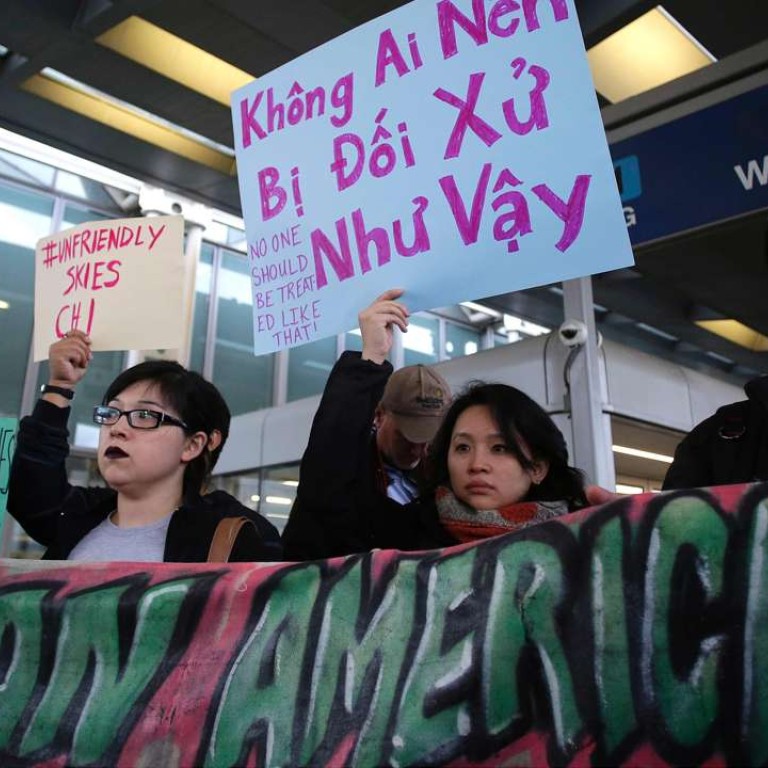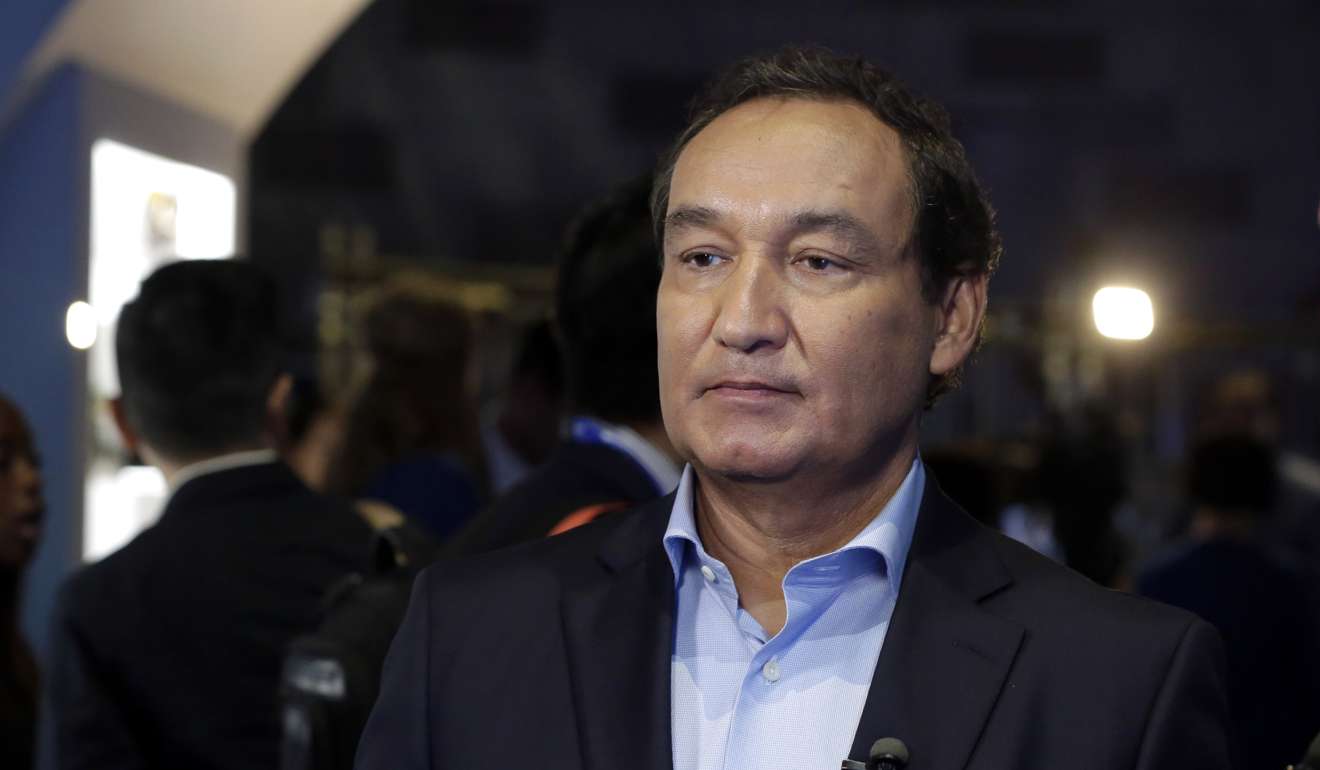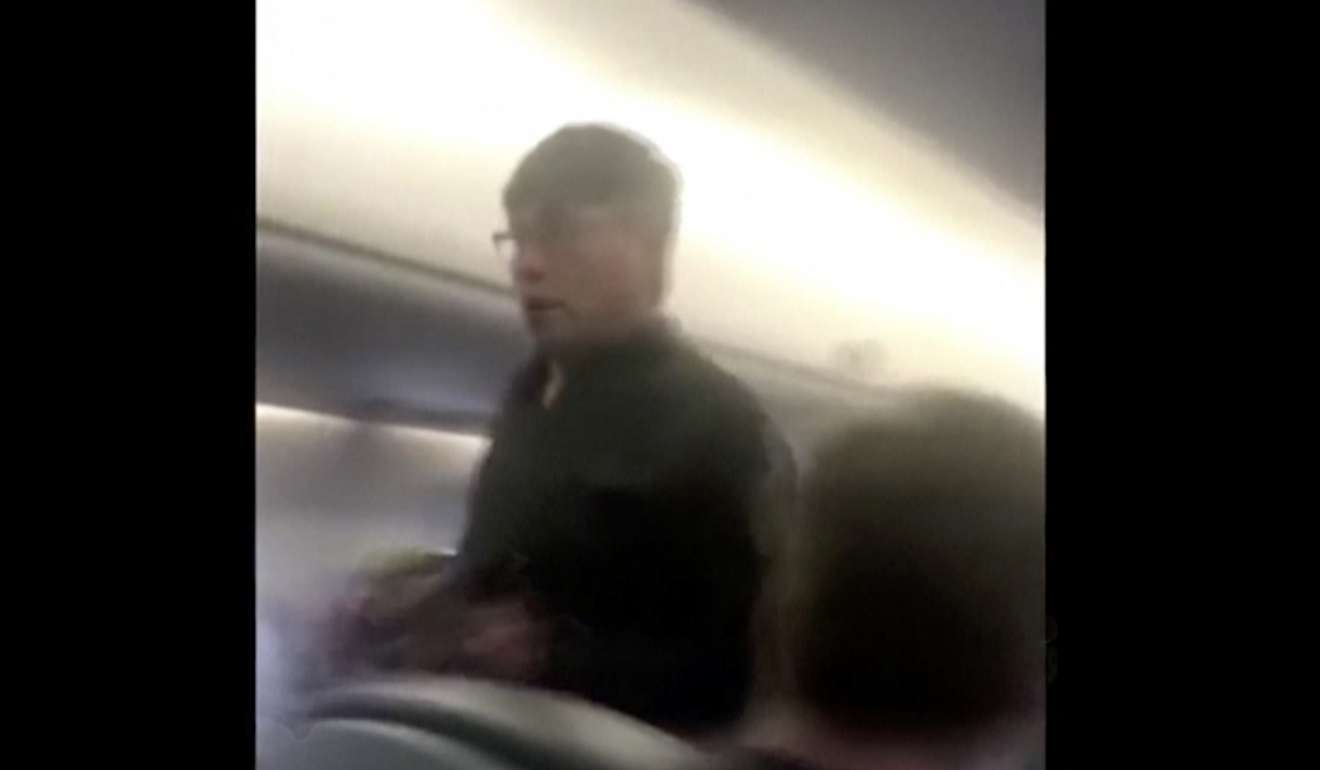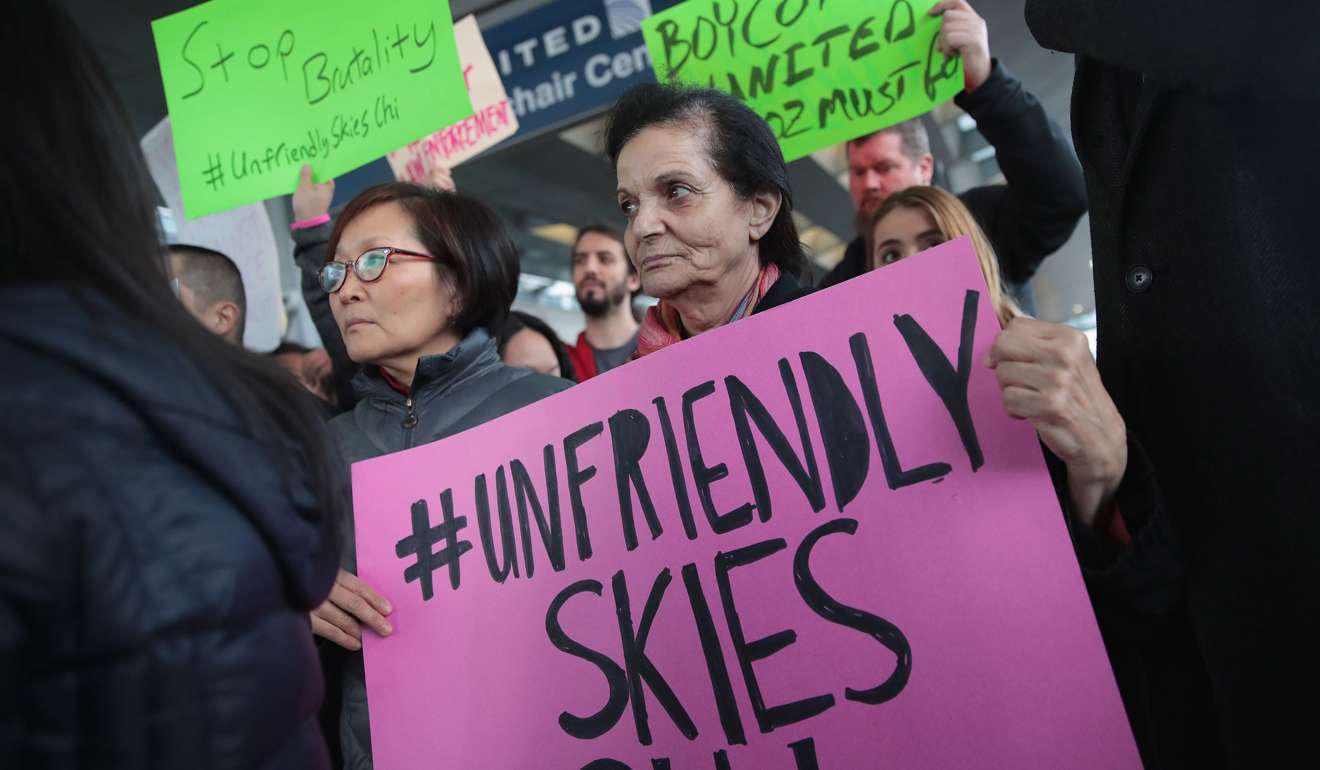
United Airlines’ brand gets a bloody nose - but crisis experts think damage will be fleeting
The video of a bloodied passenger being dragged off a United Airlines flight, after being randomly chosen to make room for airline staff who wanted his seat, sent the company’s stock tumbling Tuesday, prompted calls for the chief executive to step down and sparked a viral campaign in China to boycott the company.
But will the damage last? History suggests it may well not.
As deeply troubling as the video is, analysts said, the emotional fury such incidents generate usually is fleeting, lasting a few days or weeks at most. The reality, they say, is that consumers have long put price, convenience and personal taste ahead of outrage.

The short-lived nature of consumer movements is partly why experts in crisis management often advise executives to placate the public in the short term.
On Tuesday, two days after 69-year-old Dr David Dao’s removal from a flight from Chicago to Louisville, United chief executive Oscar Munoz appeared to do just that. Abandoning any defence of the company’s actions, Munoz said: “I deeply apologise to the customer forcibly removed and to all the customers aboard. No one should ever be mistreated this way. We are going to fix what’s broken so this never happens again.”
Volkswagen had the diesel problem, and their sales are fine. Toyota had a problem years ago, and nothing really happened to their sales
Within minutes of Munoz’s apology, the company’s shares began a resurrection from its public relations nightmare. United Continental Holdings finished the day at US$70.71, down 1.1 per cent but far from the 4.4 per cent plunge earlier in the day that had represented about US$1 billion being temporarily wiped off the company’s total value.
“This will be just a short kind of hit,” said Lakshman Krishnamurthi, a marketing professor at Northwestern University’s Kellogg School of Management. “Volkswagen had the diesel problem, and their sales are fine. Toyota had a problem years ago, and nothing really happened to their sales.”
United is just the latest corporation mired in a public-relations mess. But many of these cases have resolved relatively quickly, with little or no lasting damage to the company’s financial performance.


Pepsi pulled the ad within 24 hours, after activists called the commercial “trash” for appropriating a protest movement over the police killings of black Americans. But six days after the ad ran, PepsiCo stock was virtually unchanged.
People forget. They end up seeing a deal online, and they’ll pull the lever
“Pepsi reacted swiftly, they expressed remorse, and they enabled people to move on,” said Maurice Schweitzer, professor at the University of Pennsylvania’s Wharton School. “This is something United can easily recover from as well, but it takes an expression of remorse.”
Volkswagen and Toyota also have survived crises in recent years. The Environmental Protection Agency in 2015 found Volkswagen had used a special device to mask diesel emissions in some of its cars. And Toyota suffered a public-relations disaster starting in 2009 over its deadly “sticky accelerator pedal”.
Volkswagen and Toyota sold 10.3 million and 10.2 million cars in 2016, respectively – blockbuster sales for each, according to company data.
“History is not the friend of the consumer,” said Eric Schiffer, chairman of Reputation Management Consultants. “CEOs bank on three things: advertising to rebrand, the collective short-term memories of consumers and convenience – because their brand has a near monopoly. They figure time heals. And unfortunately it does. People forget. They end up seeing a deal online, and they’ll pull the lever.”
United has been caught in – and has recovered from – multiple public-relations backfires.
In 2008, the airline forced a musician to put his guitar in the baggage hold, refusing to allow the US$3,500 custom Taylor instrument in the cabin. The musician looked on helplessly from his coach seat as his guitar was tossed around outside. United refused to pay for the damaged instrument, and the guitarist wrote a song titled United Breaks Guitars, which went viral on YouTube.
Last month, United barred two girls wearing leggings from boarding a flight because they violated the company’s dress code for employee friends and family members who fly free.
And then there is the latest passenger scandal.
“This is going to collapse the three things they have done badly - the guitar, the leggings, and now all of a sudden you have a trifecta,” said Andrew Gilman, a crisis-management expert.
“The United line is, ‘We know you have a choice when you choose to fly,’ ” Gilman said. “Well, you really don’t have a choice. But if you had a choice today, you are going to pick the other guy.”
But consumers have short memories, and Krishnamurthi, the marketing professor, said those with few options have even shorter memories.
“Who is going to boycott?” he said. “The frequent flier is not going to. I am a 23 million mile frequent flier on United, and I’m not going to change my habits because of this.”

